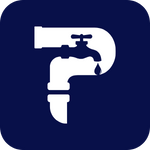Understanding HVAC Marketing: Success Strategies In the highly competitive HVAC (Heating, Ventilation, and Air Conditioning) sector, successful marketing plans are critical for companies hoping to prosper. HVAC businesses can develop enduring relationships with their current clientele in addition to bringing in new ones with the correct strategy. This post will go over a number of ways to improve your HVAC marketing initiatives, including market analysis, digital platform utilization, and local SEO techniques.
Key Takeaways
- The HVAC market is highly competitive and constantly evolving, requiring businesses to stay updated on industry trends and consumer preferences.
- Identifying the target audience is crucial for HVAC businesses to tailor their marketing strategies and messaging effectively.
- Utilizing digital marketing strategies such as search engine optimization (SEO) and pay-per-click (PPC) advertising can help HVAC businesses reach a wider audience online.
- Leveraging social media platforms like Facebook and Instagram can help HVAC businesses engage with their audience and showcase their expertise.
- Implementing local SEO tactics, such as optimizing Google My Business listings and obtaining local citations, can help HVAC businesses improve their visibility in local search results.
A thorough grasp of the market dynamics is essential for marketing HVAC services. Regulatory changes, technological advancements, and seasonal variations in demand are some of the factors that impact the HVAC industry. For example, demand for air conditioning services spikes in the summer, whereas demand for heating services peaks in the winter.
Businesses can adjust their marketing tactics by recognizing these trends. Also, it is essential to comprehend the competitive landscape. Examining the advantages and disadvantages of rivals can reveal market gaps that your company can take advantage of. Making your services appear eco-friendly, for instance, can draw in customers who care about the environment if your rivals are not emphasizing energy-efficient solutions.
HVAC companies can create a more compelling marketing strategy that appeals to their target market by keeping up with market trends & rival tactics. A key component of any marketing strategy is determining your target market. Commercial enterprises, property managers, and homeowners may be among your target audience in the HVAC sector.
| Lead Generation Metric | Value |
|---|---|
| Website Traffic | 1000 visitors per month |
| Conversion Rate | 10% |
| Leads Generated | 100 leads per month |
| Cost per Lead | 20 |
Your marketing efforts should take into account the distinct needs & preferences of each segment. For example, whereas commercial clients may prioritize cost-effectiveness & dependability, homeowners may place a higher priority on comfort & energy efficiency. Think about carrying out market research to determine your target audience.
Also, by developing customer personas, you can better envision your ideal clients & adjust your marketing strategies and messaging to appeal to them. You can design more focused & successful marketing campaigns if you know who your audience is and what they value. Using online marketing techniques is crucial for HVAC companies trying to grow in the current digital era. A website that is optimized is the cornerstone of your online presence.
Make sure your website has pertinent information about your services, is easy to use, and is responsive to mobile devices. By implementing SEO best practices, you can increase your website's search engine visibility and make it simpler for prospective clients to find you. Also, to increase targeted traffic to your website, think about spending money on pay-per-click (PPC) advertising. You can make advertisements that show up when people search for HVAC-related keywords using platforms like Google Ads.
Your advertisements will be seen by people who are actively looking for HVAC services thanks to this focused strategy, which raises the possibility of conversions. Effective PPC campaigns and a solid website can greatly increase your online visibility & draw in more leads. HVAC companies have a rare chance to interact with their audience and demonstrate their expertise through social media platforms. You can share insightful content that appeals to your target audience by setting up accounts on social media sites like Facebook, Instagram, and LinkedIn. Posting energy-saving advice or sharing client endorsements, for example, can contribute to credibility and trust.
Also, social media advertising enables accurate targeting according to interests, behaviors, and demographics. You can therefore connect with potential clients who are most likely to need HVAC services. Customer loyalty is increased and a sense of community is created when followers are engaged through messages and comments. HVAC companies can increase brand awareness and draw in new customers by actively participating in social media discussions & posting pertinent content. In order to draw clients in particular regions, local SEO is essential for HVAC businesses.
Making your website search engine friendly for local searches guarantees that prospective customers in your area will be able to find your offerings with ease. Claim and improve your Google My Business listing first. By using this free tool, you can control how your company shows up on Google Maps and search results, which will help local clients find you more easily. Make sure that your website incorporates location-based keywords into all of its content in addition to Google My Business. Words like "air conditioning repair near me" or "HVAC services in [Your City]" can help you rank higher in search results for local queries.
Your local SEO efforts will also be strengthened if you encourage pleased clients to post positive reviews on websites like Google & Yelp. HVAC companies can improve their community visibility & draw in more local customers by concentrating on local SEO strategies. Building authority in the HVAC sector while offering prospective clients value is possible with content marketing. Making interesting content for your audience, like blog entries, films, and infographics, can help them learn about HVAC systems and how to maintain them. In addition to educating readers, a blog post outlining the advantages of routine HVAC maintenance establishes your company as an authority. Also, think about adding visual content to your marketing plan.
Videos that show off successful installations or walk viewers through common HVAC problems can draw interest and promote social media shares. You can gain credibility & persuade prospective clients to pick your services over rivals by continuously creating excellent content that speaks to their needs. Your HVAC marketing efforts can be greatly improved by establishing connections with other nearby companies. It is possible to establish profitable alliances by working with complementary companies like property management firms, home improvement stores, and real estate brokers.
Opportunities for cross-promotion through collaborative events or social media campaigns are another benefit of networking. Attending regional trade exhibits or community gatherings gives you the chance to interact directly with potential clients while showcasing your offerings. HVAC businesses may increase their visibility and credibility with prospective customers by cultivating connections within the neighborhood business community. It is crucial to continuously monitor and assess lead generation initiatives in order to guarantee the efficacy of your marketing plans. Making use of programs such as Google Analytics can yield important information about user behavior, conversion rates, and the sources of website traffic.
You can determine which marketing channels are generating the most leads by keeping an eye on these metrics & modifying your strategy as necessary. To manage leads more efficiently, think about putting customer relationship management (CRM) software into place. You can better understand the needs and preferences of potential customers by keeping track of your interactions with them using a CRM system. By examining this data, you can improve your marketing strategy & concentrate on tactics that work best.
To stay competitive in a changing market, your HVAC company must regularly evaluate and modify its lead generation efforts. Conclusion Understanding the market, identifying target audiences, using digital strategies, utilizing social media platforms, putting local SEO tactics into practice, producing interesting content, networking with nearby companies, and monitoring lead generation efforts are all essential components of a comprehensive approach to HVAC marketing mastery. These tactics can help HVAC businesses become more visible, draw in new clients, and create enduring connections in their communities. The time has come for you to act!
Review your present marketing plans and think about incorporating some of the strategies covered in this posting. Every action you take will help your HVAC company expand, whether it's making your website more local search engine friendly or producing interesting content for social media. Get started now, and you'll see your efforts pay off in the form of more leads and happy clients!
If you are looking to generate more local leads for your HVAC business, you may want to consider utilizing social media marketing strategies. According to a recent article on social media for plumbing and HVAC in Aurora, Colorado, platforms like Facebook and Instagram can be powerful tools for reaching potential customers in your area. By creating engaging content and targeted ads, you can increase brand awareness and drive traffic to your website. Additionally, working with a marketing consultancy, like the one discussed in New Orleans, Louisiana, can help you develop a comprehensive marketing strategy that includes social media, website design, and more. By optimizing your online presence, you can attract more local leads and grow your HVAC business.
FAQs
What are HVAC local leads?
HVAC local leads refer to potential customers or clients who are located within a specific geographic area and are interested in HVAC (heating, ventilation, and air conditioning) services. These leads can be generated through various marketing and advertising efforts targeted at local audiences.
How are HVAC local leads generated?
HVAC local leads can be generated through a variety of marketing strategies, including local SEO, targeted online advertising, social media marketing, and traditional advertising methods such as direct mail and local event sponsorships. Additionally, referrals from satisfied customers and partnerships with local businesses can also generate HVAC local leads.
Why are HVAC local leads important for HVAC businesses?
HVAC local leads are important for HVAC businesses because they represent potential customers who are located within the business's service area and are actively seeking HVAC services. By targeting local leads, HVAC businesses can increase their chances of converting leads into paying customers and growing their customer base within their local community.
How can HVAC businesses effectively capture and convert local leads?
HVAC businesses can effectively capture and convert local leads by implementing targeted marketing strategies, providing exceptional customer service, and offering competitive pricing and promotions. Additionally, utilizing customer relationship management (CRM) software and implementing lead nurturing tactics can help HVAC businesses stay engaged with local leads and increase their chances of conversion.
What are some best practices for HVAC businesses to generate and nurture local leads?
Some best practices for HVAC businesses to generate and nurture local leads include optimizing their website for local search, creating and maintaining a strong presence on local business directories and review sites, leveraging social media to engage with local audiences, and offering valuable content and resources to educate and attract potential customers. Additionally, providing excellent customer service and following up with leads in a timely manner can help nurture local leads and build trust with potential customers.






